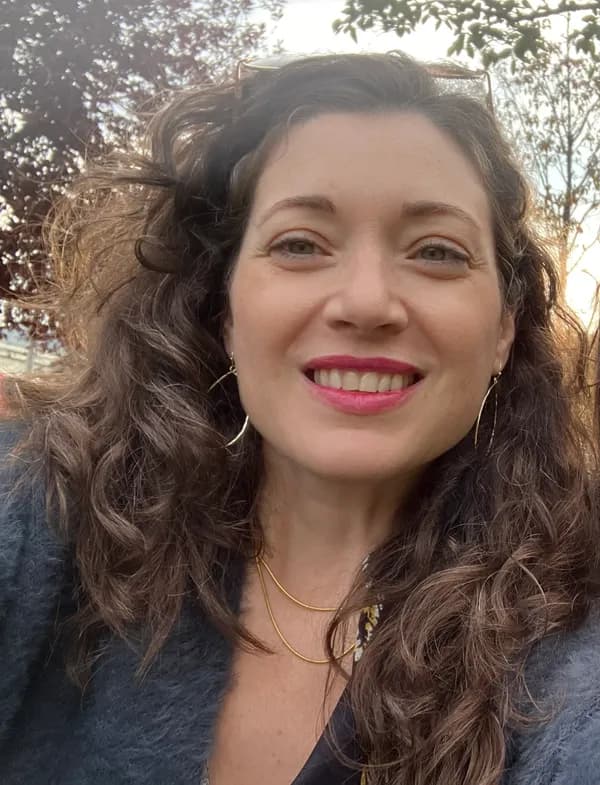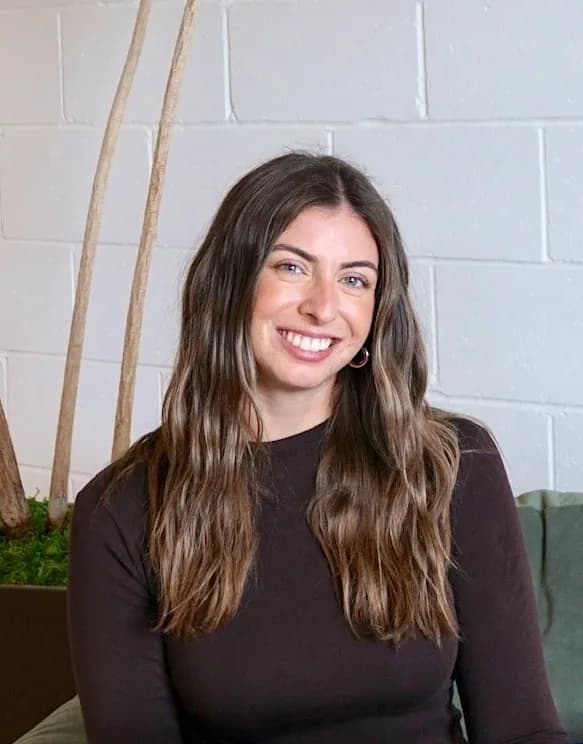Therapy for gambling addiction

One more game. One more chance to win it back. You promised this would be the last time, yet the losses keep growing and the secrets keep piling up. Maybe you have borrowed money, hidden statements, or made promises you cannot keep. The shame feels heavy, yet the urge to gamble still pulls you in. You might hope that one big win will solve everything, but deep down you know it will not. Gambling can take a serious toll on finances and relationships, but recovery is real. Many people have stopped gambling and rebuilt their lives, and with the right support, you can move toward that future too.
When gambling takes over
How it progresses
Most people start gambling casually. Maybe you won early on, experiencing that rush of excitement and possibility. Or maybe you were already feeling stressed, depressed, or bored, and gambling provided temporary escape. Over time, you needed to bet more to feel the same thrill. You started chasing losses, convinced you could win back what you'd lost if you just kept playing. The periods between gambling got shorter. You started thinking about gambling constantly, planning your next opportunity, or reliving past sessions.
The double life
Gambling addiction thrives in secrecy. You might have hidden bank accounts, secret credit cards, or online betting apps your partner doesn't know about. You lie about where you've been, what you've spent, and whether you've gambled. You might borrow money with elaborate stories, sell possessions, or steal. The deception compounds the shame, which drives more gambling, which requires more lies. You're living two lives, and the effort of maintaining both is exhausting.
The scope of the problem
In Canada, approximately 3% of the population experiences moderate to severe gambling problems, with about 1% meeting criteria for disordered gambling. Young adults and men show higher rates, though gambling problems affect people across all demographics. Canadian gambling prevalence study. The expansion of online gambling and sports betting apps has made gambling more accessible than ever, contributing to rising problem gambling rates. CAMH gambling information. The financial losses can be staggering, with people losing life savings, homes, and retirement funds.
Gambling addiction in Canada
Sources: Statistics Canada and CAMH.
Different forms of gambling problems
Some people are slot machine or casino gamblers. Others bet on sports, play poker, or buy excessive lottery tickets. Online gambling and mobile betting apps make it possible to gamble anywhere, anytime, in complete privacy. Day trading or cryptocurrency speculation can become forms of gambling when driven by the same compulsive patterns. You might have one preferred form of gambling or cycle through several. The common thread is that you can't stop despite mounting consequences, and the activity has taken over your life.
The wreckage gambling leaves behind
Financial devastation
This is often the most visible damage. Savings accounts drained. Credit cards maxed out. Payday loans with predatory interest. Missed mortgage or rent payments. Utilities cut off. Retirement funds cashed out. Some people face bankruptcy, foreclosure, or repossession. The financial hole feels impossible to climb out of, especially while still gambling. Recovery includes not just stopping gambling but developing a realistic plan to address debt and rebuild financial stability.
Broken trust and relationships
The lies hurt more than the money. Partners feel betrayed, confused, and angry. Children lose trust. Friends who loaned you money feel used. Family members who've bailed you out repeatedly may refuse to help anymore. Some relationships don't survive gambling addiction, especially if the deception was extensive. Rebuilding trust takes time, consistency, and often requires making amends for specific harms you've caused.
Mental health and legal consequences
Anxiety, depression, and suicidal thoughts are common among problem gamblers, particularly when facing financial ruin. Some people commit illegal acts like theft or fraud to fund gambling or cover losses, leading to criminal charges. Work performance suffers from preoccupation, absence, or gambling during work hours. The stress affects physical health through poor sleep, neglected medical care, and stress-related conditions. Recovery addresses all these interconnected problems.
How therapy helps you stop gambling
Why specialized treatment matters
Gambling addiction isn't about willpower or moral failure. It's about how gambling hijacks your brain's reward system, creating compulsive behaviour that overrides rational decision-making. A therapist who specializes in gambling addiction understands the specific psychology of near-misses, the gambler's fallacy, and chasing behaviour. They know how to help you manage triggers, develop financial safeguards, address underlying issues, and navigate the repair work needed with family and creditors. They've seen people recover from situations as bad or worse than yours.
What treatment involves
Therapy begins with complete honesty about your gambling, losses, debts, and consequences. Your therapist will help you understand your triggers, develop strategies to block access to gambling, and create immediate crisis management if you're in financial or legal danger. You'll learn skills for managing urges, challenging the distorted thinking that fuels gambling, and finding healthier ways to cope with stress or boredom. Financial planning and family therapy often become part of treatment as you work to repair damage and rebuild trust.
Evidence-based treatment approaches
Cognitive behavioural therapy
CBT for gambling addiction targets the distorted beliefs that keep you gambling: "I'm due for a win," "I can control the outcome," "gambling is the only way to solve my financial problems," or "I have a special system." You'll learn to identify these thoughts, challenge them with reality, and develop alternative responses. CBT also teaches practical coping skills for managing urges and high-risk situations. Research shows CBT is one of the most effective treatments for gambling disorder. Okuda et al., 2009.
Motivational interviewing
Many people enter treatment with ambivalence. Part of you wants to stop; another part believes you can still win it all back. Motivational interviewing helps you explore your own reasons for change, resolve this internal conflict, and strengthen your commitment to recovery. Your therapist doesn't argue with you or demand abstinence; instead, they help you examine the actual costs and benefits of gambling versus stopping.
Relapse prevention and urge management
You'll identify your specific triggers: boredom, stress, financial pressure, seeing gambling ads, or having access to money. Together you'll develop a detailed plan that includes blocking gambling sites and apps, self-excluding from casinos, limiting access to money, and building alternative activities. You'll learn to "surf the urge" rather than acting on it, recognizing that cravings peak and then decrease if you wait them out.
Financial counselling integration
Recovery requires addressing the financial damage. Your therapist may work with you to create a budget, develop a debt repayment plan, and establish financial safeguards like giving a trusted person control over accounts or setting up barriers to accessing large sums. Some people benefit from working with a credit counsellor or financial advisor who understands gambling addiction.
Treating underlying issues
Many people gamble to escape depression, anxiety, trauma, or relationship problems. Some use gambling to manage ADHD or bipolar disorder. Others gamble when lonely, bored, or stressed. Effective treatment addresses what drives your gambling, not just the behaviour itself. Your therapist will help you develop healthier coping strategies and may coordinate with a psychiatrist if medication could help with co-occurring conditions.
Your recovery process
Crisis management and stabilization
Your first session requires complete honesty about the scope of your gambling, debt, and any immediate crises. Your therapist will help you assess safety concerns, legal issues, and urgent financial needs. You'll put immediate blocks in place: delete gambling apps, self-exclude from casinos and online sites, set up account restrictions, and tell someone you trust about your commitment to stop. This phase focuses on stopping the bleeding and creating safety.
Active recovery work
Weekly sessions focus on managing urges, restructuring your thinking, addressing triggers, and building a life that doesn't revolve around gambling. You'll practice skills between sessions, attend support groups if appropriate, and work on repairing relationships. Early recovery is often the hardest period as you face the consequences of your gambling without the escape it provided. Your therapist supports you through this while holding you accountable to your recovery plan.
Maintenance and rebuilding
As you accumulate weeks and months without gambling, the intensity of urges decreases and life begins to stabilize. Sessions may space out as you demonstrate consistent progress. The focus shifts to preventing relapse, continuing to address underlying issues, rebuilding finances and relationships, and finding meaning and satisfaction in life without gambling. Some people maintain periodic check-ins; others complete treatment and move forward independently with their support system in place.
Find a therapist for gambling addiction
Choosing the right therapist matters. Each province in Canada has its own regulations, which is why working with a recognized professional can make a real difference in your care. Stellocare takes the uncertainty out of the process by listing only verified therapists you can trust.
The right therapist for you
No therapists found with these specialties in Ontario.
Try selecting a different province.Resources and strategies
Canadian gambling support services
Centre for Addiction and Mental Health (CAMH) — Problem Gambling & Technology Use Treatment Services
Outpatient assessment and treatment for people whose gambling or technology use is causing serious difficulties. Self-referral is accepted (call 416-535-8501 press 2). Located in Toronto but offers resources relevant across Ontario. Learn about services
Gambling Support BC
Free, 24/7 support line and online resources for residents of British Columbia: self-assessment, education, Indigenous-specific services, family & friend resources. Call toll-free 1-888-795-6111. Find support in BC
ConnexOntario
Free, confidential 24/7 service in Ontario offering information and referral for problem gambling, addictions and mental-health concerns. Call 1-866-531-2600 or text “4 HOPE” (or chat online). Get help in Ontario
Saskatchewan Problem Gambling Helpline
Free, confidential help in Saskatchewan — call 1-800-306-6789 for counselling, online chat, support for gamblers and family members. Find help in Saskatchewan
Immediate steps to stop gambling
Block access immediately
- Delete all gambling apps: remove sports betting apps, casino apps, poker apps, and any others from all devices. Don't wait until tomorrow.
- Use blocking software: install Gamban or BetBlocker to block gambling sites on all devices. These tools are designed specifically for gambling blocking and are hard to bypass.
- Self-exclude from casinos: register for your province's self-exclusion program immediately. Once enrolled, casinos will refuse you entry and online sites will close your accounts.
- Avoid gambling environments: stay away from casinos, racetracks, convenience stores that sell lottery tickets, or anywhere else you typically gamble.
Control access to money
- Tell someone you trust: confess the extent of your gambling to a partner, family member, or friend. Ask them to help monitor your finances temporarily.
- Limit cash access: give your bank cards to someone you trust, or set daily withdrawal limits at the lowest possible amount. Cancel credit cards with high limits.
- Set up account barriers: have a trusted person receive account alerts for large transactions, require dual signatures for major purchases, or temporarily give someone else control of accounts.
Managing urges
- Delay and distract: when an urge hits, commit to waiting 15 minutes. Call someone, go for a walk, take a shower, or do something physical. The urge will decrease.
- Challenge gambling thoughts: when you think "I'll win it back," remind yourself of the actual math. The house always wins over time. Your "system" doesn't work.
- Play the tape forward: imagine not just the excitement of gambling, but the aftermath: the guilt, the lies you'll tell, the money lost, the damage to relationships.
- Calculate your losses: write down everything you've lost gambling. Be honest. This reality check can strengthen your resolve when cravings hit.
Gamban and BetBlocker are gambling-specific blocking tools. I Am Sober lets you track gambling-free days and connect with others in recovery. Some people use Freedom or Cold Turkey to block all apps and websites during high-risk times.
Questions about gambling addiction recovery
Can I ever gamble recreationally again
No. If you have a gambling addiction, complete abstinence is the only safe goal. Unlike moderate drinking for some alcohol users, there's no such thing as controlled gambling for someone with gambling disorder. The neural pathways that drive compulsive gambling don't disappear. Attempting to gamble "just for fun" almost always leads back to problem gambling. Permanent abstinence is the reality of recovery.
How do I repair the financial damage
Start by creating a complete and honest list of all debts. Work with a credit counsellor to develop a realistic repayment plan. You may need to declare bankruptcy in severe cases, though this should be a last resort after exploring other options. Focus on stopping gambling first; you can't solve financial problems while actively gambling. Recovery often requires years of disciplined financial management, but people do rebuild.
Will my partner or family ever trust me again
Trust is rebuilt through consistent behaviour over time, not through promises or apologies. Stop gambling completely, be transparent about your finances, attend therapy and support groups, and demonstrate through actions that you're committed to recovery. Some relationships survive; others don't. The betrayal of gambling addiction is profound, and people have the right to protect themselves. Focus on your recovery regardless of the outcome.
What if I've committed crimes to fund my gambling
Consult a lawyer immediately if you've committed theft, fraud, embezzlement, or other crimes. Your therapist can help you process the situation but cannot provide legal advice. Turning yourself in and taking responsibility may be necessary. Some courts view gambling addiction treatment favourably in sentencing, but legal consequences often follow. Address both the legal issues and the gambling addiction simultaneously.
How long until life feels normal again
The acute cravings often decrease significantly within the first few months of abstinence. Financial recovery takes much longer, sometimes years depending on the extent of debt. Relationship repair is gradual and depends on consistent behaviour over time. Most people notice life beginning to stabilize within six months to a year, but full recovery of finances and relationships often takes several years. The key is that it does get better if you stay stopped.
Related concerns
References
- Centre for Addiction and Mental Health. Problem Gambling and Technology Use Treatment Services. Retrieved from https://www.camh.ca/en/patients-and-families/programs-and-services/problem-gambling--technology-use-treatment
- Okuda, M., et al., (2009). Cognitive Behavioral Therapy for Pathological Gambling: Cultural Considerations. Am J Psychiatry, 166(12). Retrieved from https://www.ncbi.nlm.nih.gov/pmc/articles/PMC2789341/
- ConnexOntario. Retrieved from https://www.connexontario.ca/
- Ladouceur, R., Lachance, S., & Fournier, P. M. (2009). Is control a viable goal in the treatment of pathological gambling? Behaviour Research and Therapy, 47(3), 189-197.
About Stellocare
Stellocare is a Canadian platform where you can find the best fit therapist for you. Search the right thperaists now by asking our AI, browsing our list, or finding our social workers for personal referral.

Kaycee Bevans
Registered Provisional Psychologist (AB)

Rex Cheung
Registered Social Worker (ON)

Christine Chambers
Registered Psychotherapist (ON)

Diana Freitas
Registered Social Worker (ON)

Ilona Farry
Registered Psychotherapist (Qualifying) (ON)

Marlo Drago
Registered Social Worker (ON)

Natasha Milloy
Registered Psychotherapist (Qualifying) (ON)

Elena Temelkova
Registered Psychotherapist (Qualifying) (ON)

Claudia Dargis
Registered Psychotherapist (ON)

Michelle Régnier
Registered Social Worker (ON)

Nicole Pawlick
Canadian Certified Counsellor

Veronica Kozak
Registered Psychotherapist (Qualifying) (ON)

Danielle Van Alstine
Registered Psychotherapist (Qualifying) (ON)

Pantea Ahmadian
Registered Psychotherapist (Qualifying) (ON)

KATHY MOSBAUGH
Registered Psychotherapist (ON)

Evan Vukets
Registered Clinical Counsellor (BC)

Tom Roes
Registered Social Worker (ON)

Ivana Di Cosola
Registered Social Worker (ON)

Irfa Samnani
Registered Psychotherapist (Qualifying) (ON)

Christine Griffiths
Registered Psychotherapist (ON)

Kaycee Bevans
Registered Provisional Psychologist (AB)

Rex Cheung
Registered Social Worker (ON)

Christine Chambers
Registered Psychotherapist (ON)

Diana Freitas
Registered Social Worker (ON)

Ilona Farry
Registered Psychotherapist (Qualifying) (ON)

Marlo Drago
Registered Social Worker (ON)

Natasha Milloy
Registered Psychotherapist (Qualifying) (ON)

Elena Temelkova
Registered Psychotherapist (Qualifying) (ON)

Claudia Dargis
Registered Psychotherapist (ON)

Michelle Régnier
Registered Social Worker (ON)

Nicole Pawlick
Canadian Certified Counsellor

Veronica Kozak
Registered Psychotherapist (Qualifying) (ON)

Danielle Van Alstine
Registered Psychotherapist (Qualifying) (ON)

Pantea Ahmadian
Registered Psychotherapist (Qualifying) (ON)

KATHY MOSBAUGH
Registered Psychotherapist (ON)

Evan Vukets
Registered Clinical Counsellor (BC)

Tom Roes
Registered Social Worker (ON)

Ivana Di Cosola
Registered Social Worker (ON)

Irfa Samnani
Registered Psychotherapist (Qualifying) (ON)

Christine Griffiths
Registered Psychotherapist (ON)

